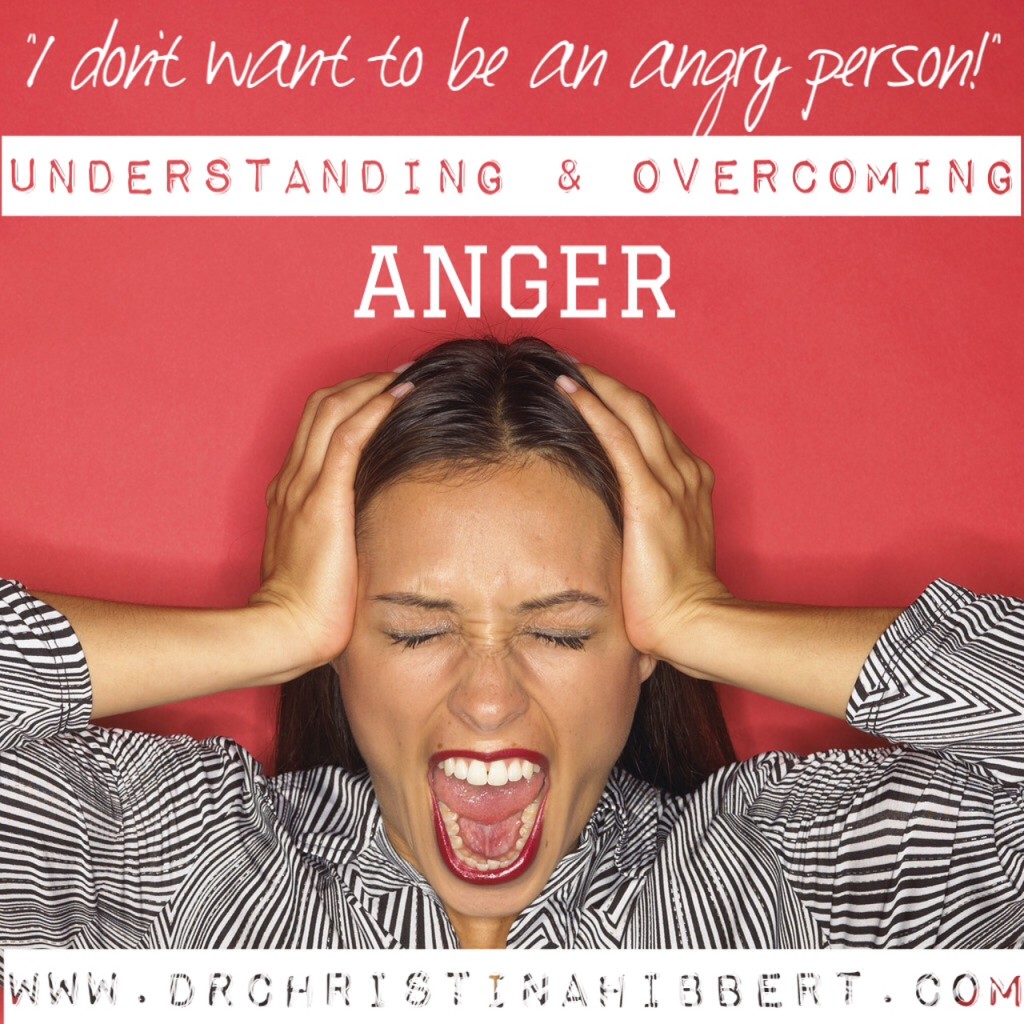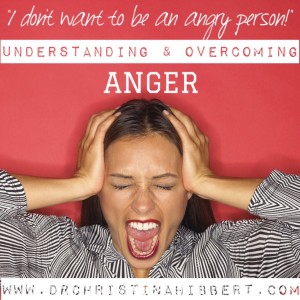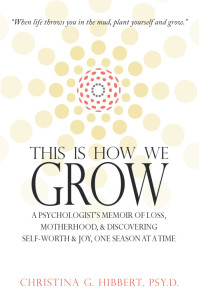
23 Apr Understanding & Overcoming Anger: “I don’t want to be an angry person!”
 If there’s one emotion people have a hard time with, it’s anger. I know I’ve certainly struggled with it. I admit, I can get pretty roiled up sometimes, and when I do, I hate how I feel and especially how I act. That leaves me feeling angry toward myself, too.
If there’s one emotion people have a hard time with, it’s anger. I know I’ve certainly struggled with it. I admit, I can get pretty roiled up sometimes, and when I do, I hate how I feel and especially how I act. That leaves me feeling angry toward myself, too.
“I don’t want to be an angry person!”
After my sister died, in 2007, I was pretty angry, yet it took me months to finally admit it. When she had died I had inherited my two nephews–and all her unfinished problems. It was too much for anyone to handle, and yet I soaked it all up, stuffing my emotions, trying to be “strong.” “I don’t want to be an angry person,” I told myself.
But anger, stuffed, doesn’t just go away. Eventually, it comes out in even less desirable ways. I knew that. I had taught so many clients about anger and how to handle it. But it’s different when it’s YOU. One day, I finally “got” it. I realized the facts I’d been teaching so many others for so many years before: Anger is just an emotion. Like sadness, or heartache, or even happiness, anger is a feeling. I realized “Anger is not me. It’s not who I want to be or what I believe is good. But it is how it feel. It underlies why I am so confused and hard on myself.” (This is How We Grow, p. 145)
Understanding Anger
Anger is an interesting emotion. An emotion of action, anger gets us to do the things we otherwise may not. This can be a good thing, such as the mother who stands up for her child who has been wronged, or it can be a not-so-good thing, such as the frustrated child who starts a fistfight. It can be intense, overwhelming, even frightening. Anger can consume us–if we let it–turning an ordinary you or me into a big, green Hulk! But again, anger is just an emotion, and, like any emotion, anger is neither “good” nor “bad.” Rather, it’s how we express our anger that gets us into trouble.
Dealing with Anger
Most of us fall into one of two categories for how we deal with the emotion of anger: 1) outward expression, what I call  aggression, or 2) inward expression, what I call self-loathing.
aggression, or 2) inward expression, what I call self-loathing.
Aggression can be physical, psychological, or emotional—yelling, fighting, slinging cutting words—often at those you love most.
Self-loathing can come from extreme disappointment in yourself, often because you’re feeling angry, or it can result from anger toward someone else that is turned inward in and effort to “avoid harming others.”
Both aggression and self-loathing are consequences of failing to express anger in healthy ways, and usually the costs are high.
Overcoming Anger
The key to overcoming anger is to give it a voice so it doesn’t overpower you. There are many ways to do this. Some of the most helpful include:
- Talk it out.
- Write furiously (feel free to throw away or burn it when you’re done).
- Throw your anger into intense physical activity (kickboxing works great!).
- FEEL the anger. Sit still and focus on the feeling of anger inside. Remind yourself this emotion is not YOU. Focusing on intense emotions and feeling them is a powerful way to release the emotion and help you feel free of it. (For more on how this, read FEEL: How to cope with Powerful Emotions (& video))
- If you’re angry at a specific person, write them a letter expressing everything you feel. You don’t have to give it to them, and you might choose not to once you calm down, but writing specifically to them will help get the anger out. Then, after you finish the letter, do something kind for yourself. Go out to dinner, take a hot bath, get a massage. Do an act of love for yourself to reward you for your work in dealing with your anger.
It is also very helpful to look for the underlying emotions feeding into your anger. Anger is what we call a secondary emotion. This means there is almost always another, primary emotion, feeding the anger. Primary emotions—like sadness, pain, fear, joy—are core emotions; they can exist alone or form the base for secondary emotions like anger. Usually anger is fed by sadness, pain, fear, or a combination of these. A trusted friend, loved one, or therapist can help you see what’s feeding your anger and work on overcoming it on this deeper level.
For example, when I do couple’s therapy, it’s common for a couple to come in angry. The more I let them talk out their emotions, usually, the angrier they become. So, instead, I help them see that their so-called “anger” is really coming from a place of sadness or pain. I help them see how they each feel unloved and wish the other person would show how much they care. I then encourage expression of the sadness and pain. You can see how this softens the fire of anger and makes space for empathy. Empathy is an act of turning toward another person in love, and where real love is present, anger is not. When we identify and speak from the deeper emotion we are not only more likely to address the real issue, but we may also find ourselves feeling love. Instead of acting aggressively or harshly toward ourselves, we find tears, understanding, relief. Instead of lashing out at someone dear, we find compassion, forgiveness, letting go.
Learning from Anger
In most cases, it’s best to work through anger before trying to resolve the situation that created your anger. Use the suggestions above to process your feelings of anger, first. Let your feelings of anger teach you what you need to learn. Take all the time you need. Then, when you’re ready, you will have a clearer mind and heart to help you decide how to best handle whatever circumstances need to be handled. You will handle the anger-provoking situations–and people–in your life in much healthier, more compassionate ways.
~This post is based on a deleted excerpt from This is How We Grow.
How do you feel about anger? Do you ever struggle with it? What helps you understand, deal with, and overcome your anger? Leave a comment below!
Be sure to check out Dr. Hibbert’s Amazon Bestseller, This is How We Grow–
available now on Amazon.com!

Join my This is How We Grow Personal Growth Group!
FREE. Online. Growth. What more could you ask for?
Don’t miss a thing!
SUBSCRIBE, just below, “like” my Facebook pages (Dr. Christina Hibbert; This Is How We Grow), and follow me on Twitter,Pinterest, & Instagram!
You may manage your subscription options from your profile
Related Posts/Articles


Hello Christina, your timing was spot on re the issue of anger. Sometimes being angry makes me come alive and feel worthwhile. However the minute I express this; the receiver normally takes umbrage and I am left feeling guilty re my actions.
I do not think society is much good at coping with anger as it is seen in a negative light. Whereas sadness appears to be more acceptable.
Too much anger is never productive and if not released can manifest itself in a number of ways.
Anger can become corrosive and eat away at your own well-being thus causing envy and resentment. Anger is related to expectations and when those are not met this can become a source of anger.
Expressing and working through anger is the hard part and this is easier said than done.
Anger is often misplaced and projected on to others.
Being angry with your own self is not always easy and you need to admit your own failings and just sometimes this is not clear or visible.
The saying about “the pen is mightier than the sword” comes into being when expressing anger and the hurt and offence you can cause to others can be considerable. This I know from first-hand experience.
Anger also represents strong emotions and sometimes you are not always fully aware just how deep your emotions run.
Anger can also be frightening especially your own anger and time is needed for this to be processed in a way that causes less pain to self and others.
Acknowledgement of anger might be the first step either with yourself or with clients.
Thanks Josie
Thank you for your thoughts, Josie. I agree completely with everything you said, especially the fact that anger is a much less acceptable emotion than sadness or others like that. I appreciate your suggestions and think others will benefit from reading your ideas!
i get really angry when people use big words and i don”t understand what they mean
You’re not alone in that! xo
Oh my gosh. ME TOO!! I still have a problem with words people use, and i don’t understand even if i look the word up, i still don’t get it! Makes me angry! Why can’t people use plain old english words. Life would be so much easier to understand. Alot less Anxiety for many people.
Thank you for your message on anger today…I always love to read what you have to say and do a self-check. I believe I am generally a happy person, I hardly feel “angry” or “mad” but I do get highly irritated or frustrated with my kids, I have 5! Sometimes I yell or raise my voice at them letting them know how irritated I am and I feel really bad afterward. I know yelling hardly gets the message across because when I am yelled at, that’s when I put up my wall and quit listening because I am hurt that I am being yelled at. But when I am frustrated, it feels like raising my voice comes so automatic and it’s the only way to be heard! I have even self-reflected in the moment and can’t get myself to take the yell back, even thinking that I shouldn’t have yelled, I should apologize, but the frustrated side says, no, they don’t listen, making them feel bad for what they did or are doing will get them to think twice next time…how do I get them to change their behavior?
….I think I just solved it as your other posts on parenting popped into my head just now, as I thought of what your response might be. The thing is, parenting takes a lot of work and yelling take no effort at all. Maybe if I put more time into my parenting efforts, I will feel less need to yell at my kids!
Thanks Christi for all your help!
I love how you just worked through things and came up with some great advice for yourself, Leonore. I would just add that the yelling comes from feeling frustrated, as you said. So, focusing on how to prevent frustration before it occurs is one great way to prevent yelling moments. It might be that you’re exhausted and need a break; it might be that your kids haven’t been pulling their weight and it’s time to re-evaluate their responsibilities and consequences with them. Whatever it is, if you go back to the source of the frustration you’ll find an answer for where to begin. You can also learn to notice when you’re feeling frustrated and before the yelling moment comes, you can give yourself a time-out or try to calm things down in some way. It’s a learning process, and one I can relate to, for sure. So, stick with it. The more you pay attention to your thoughts and emotions and behaviors, the more opportunities you’ll have to try something that works a little better. And the more you try new ways to do things, the more you will find success in overcoming your frustration. Hope that helps a little! Thanks so much for your comment. I know you’re not the only one who can relate! 🙂
I made a New Year’s resolution to work on my anger. I know it stems from problems with my husband, problems that are probably never going to be resolved (6 months couples therapy with both of us trying), but it is boiling over into other areas of my life. He loves work more than anything else, although he would deny that. I have given up trying to get more time with him, so to his way of thinking, the relationship is much happier and peaceful. The problem is I am left with the pain of feeling unvalued and disrespected (arriving home hours after he said he would, for example). I am left trying not to be emotionally involved with our relationship in order to protect myself from the pain. I am not very good at that, so I get angry and eventually it all boils over. I actually feel bad, because he is surprised by the anger and I can’t get to forgiveness, to get over things.
I may try to talk to him again, but it hasn’t worked in the past, even though I have done the stuff everyone suggests–stick to one topic, use “I” statements, acknowledge areas where I was at fault, etc. I have tried so many times, that I don’t have much hope in it making a difference. That is how I found this post, searching for suggestions on how to manage anger when you aren’t going to get real help from the other party on coming to some sort of concord.
Perhaps in the meantime, I will try journaling, to name my emotions and try to determine to let go of the anger, rather than just stuffing it down. I need to forgive him (and a few others) but I just can’t get there by myself.